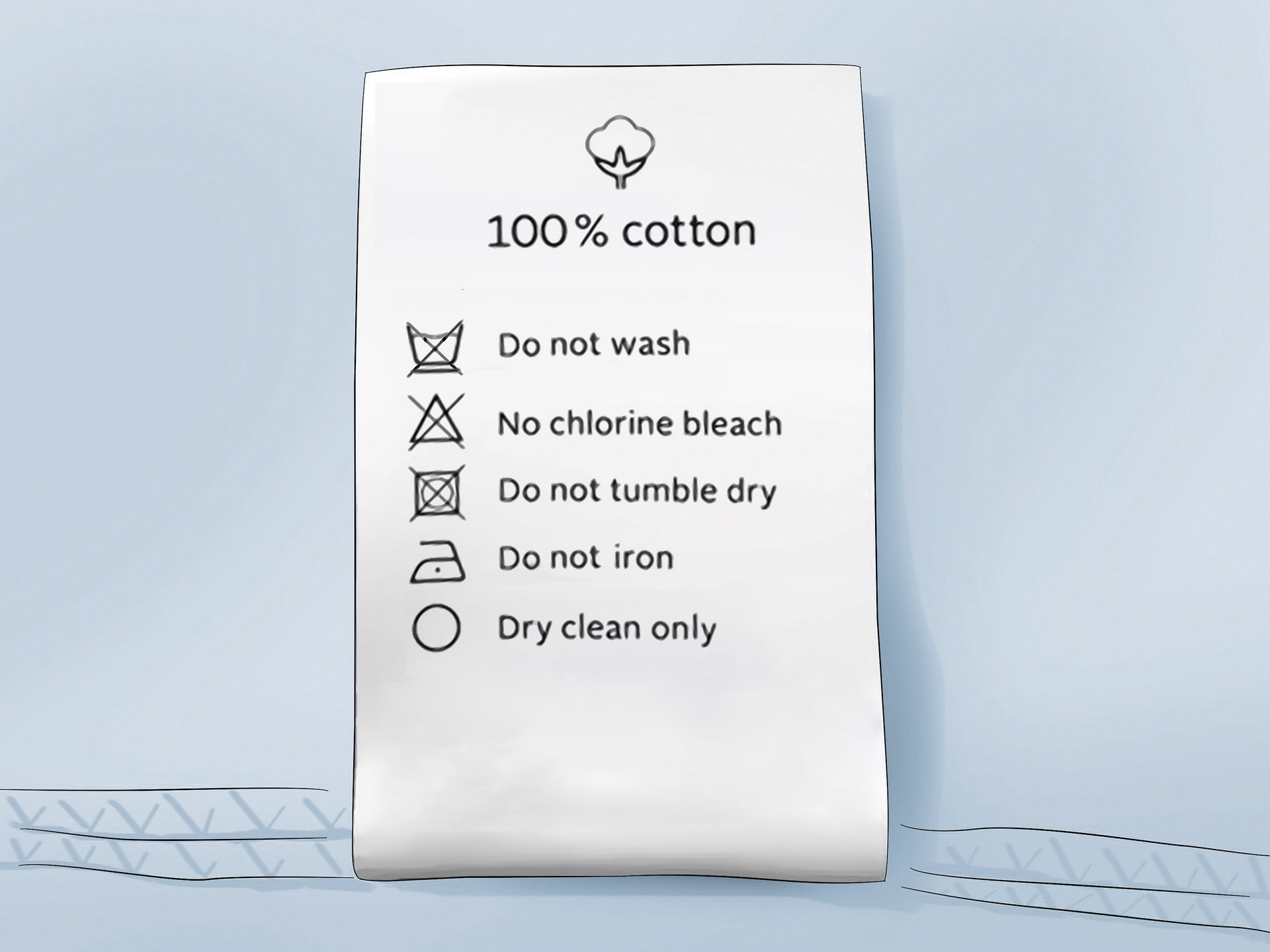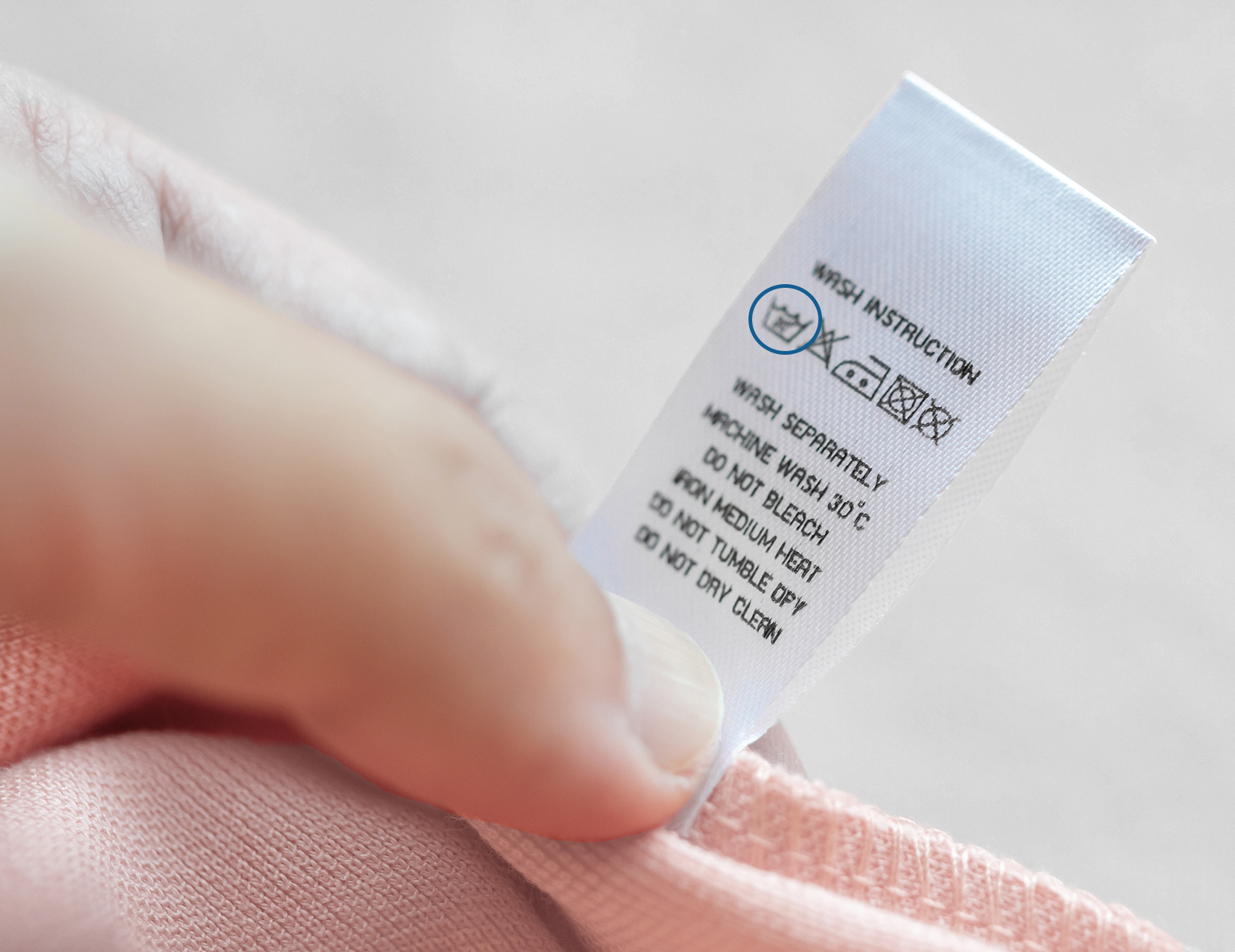Dressing up in a suit and dress shirt feels sophisticated; the necessity to wash your dress shirt afterward does not.
Still, it’s part of the territory.
You’ve probably invested some pretty good money in several dress shirts, so you should take the greatest care in washing them.
When you do it properly, you’ll prolong the life of your dress shirt, saving you money over time.
Prepare the Shirt for Washing
The very first step you need to take before any cleaning action can happen is to check your dress shirt’s label.
That’s where you’ll find special instructions telling you the best way to get your shirt clean while also preserving its integrity.
The most important information you’ll need from your label is if your shirt needs to be dry cleaned or if it’s machine washable.
Many men’s dress shirts are machine washable, but not all. If it can go into your washing machine, check to see if it tells you “gentle” or “delicate.”
Undo all the buttons on your dress shirt before washing it, including any on its collar and sleeves.
Pre-treat any spots or stains on your shirt. You can do this with either a pre-treatment spray or by rubbing a small amount of detergent onto the site.
Don’t forget to pay special attention to the inside of your collar and cuffs, where dirt can build up.
Turn your dress shirt inside out before you wash it. That will be better for getting underarm odors out and help prevent fading.
How to Machine Wash Dress Shirts at Home
Washing your dress shirts yourself at home requires both time and energy.
You can also prolong your dress shirt’s life when you wash it correctly at home. Remember to use a stain remover before tossing in your load for better results.
Again, don’t forget to check the shirt’s care label to help guide you.
Setting Up the Machine
Once you load your dress shirts into your washing machine, you’ll need to decide how you’ll wash your shirt.
After you’ve decided whether to use a normal or delicate cycle, you’ll need to determine what temperature to wash your shirts in.
For example, white and lighter dress shirts can be washed in either hot or cold water.
You should only ever use cold water for dark shirts. Warm or hot water will make the color fade.
However, for either type of dress shirt, cold is always best. Warmer temperatures may cause your dress shirt’s placket to shrink, giving it a puckered look that’s hard to iron out.
Fill the Machine with a Detergent
Your standard laundry detergent should be perfectly fine for washing your dress shirts. However, be sure you are using one that’s color safe; it helps keep your colors brighter and bolder.
Some detergents are specifically designed for delicates, and these are fine if you do many loads of dress shirts on the delicate cycle. However, it’s not necessary.
Add the detergent you’ve chosen to the washing machine. You’ll probably need around 1/4 to 1/2 of what’s usually recommended for a full load, as indicated on the detergent packaging.
If you are washing white dress shirts, add bleach or another whitening booster to the load. Whites always look their best when they are pristine, so give them a little extra help to prevent dullness.
Normal Cycle to Wash Standard Dress Shirts
Your care tag may not tell you outright if your dress shirt is “machine washable” or “dry clean only.”
Instead, look for an icon of water in a tub. That means you can toss it into your washing machine.
A good guide to remember is that if your dress shirt is cotton, linen, polyester, nylon, or other thick fabric, it will fare best in the normal cycle.
If you can set your shirts on normal, I advise it. The normal cycle is a little heavier duty than the delicate cycle, so it’s more effective at removing dirt and stains.
Proceed with washing your dress shirt as if doing any other load.
Delicate Cycle for Fragile Fabrics
The normal cycle may be too aggressive for some dress shirts. If the icon on your care tag has an X through it, that shirt is meant to be washed in the delicate cycle.
Any lightweight dress shirt material, such as silk or cashmere, would be best in a more gentle wash.
You might consider putting your dress shirts in a washer bag. It’s a protective mesh bag that keeps delicate fabrics from catching on to something inside your washer.
A washer bag isn’t necessary, but it is good insurance to prevent damage to your fragile dress shirt.
How to Dry Dress Shirts
The spin cycle on your washing machine does an excellent job of getting most of the water out of your dress shirts.
Still, the shirts will be a crumpled mess in your washing machine once the load is finished. So remove the wet shirts as soon as you can.
After you take each shirt out:
- Hold it up in front of you by the collar or shoulders and shake it out to release the wrinkles.
- Give it a few hard, sharp snaps.
- Hang your dress shirt on a sturdy thick hanger to air dry.
You can put it in the dryer on a low setting for only a couple of minutes to help speed up the process, but you want most of the drying to take place naturally.
The dryer can be too damaging and harsh on your dress shirts. It can also shrink them a bit.
Washing Men’s Dress Shirt at the Cleaners
Depending on your work schedule, and if you wear dress shirts daily for your job, washing them may feel like too much work.
You may decide it’s worth spending a little extra cash to have somebody else take care of it. The dry cleaners will use one of two different methods.
Use a Wash and Press Cleaning Service
If you take your dress shirts to the dry cleaners, this is the most common method for cleaning that they’ll use. They only dry clean your dress shirts if you specify that’s your preferred method.
First, they wash your dress shirt in a washing machine, just as you would at home. They use the same type of washing machine and detergent as you would.
At the end of the wash, your dress shirt goes through a spin cycle to remove most of the water.
While your shirt is still damp, the cleaner lays it on an industrial shirt press and closes it over your shirt. This process dries and irons your shirt at the same time.
A wash and press service is an easy and relatively cheap way to clean your dress shirts. However, this may cause a lot of wear and tear on your shirts.
It could also cause some damage to them; the top of the press is hefty. If it’s closed too hard over your shirt, it may break some buttons.
Use a Dry-Clean Dress Shirt Service
The other way to clean clothing at a dry cleaner is by using chemicals instead of water and detergent. This method uses only a tiny bit of water, if any.
Dry cleaning is suitable for oil-based stains, such as deodorant or cooking oil. However, it won’t be helpful to remove water-soluble stains like sweat.
So if sweat stains are a concern for your dress shirts, dry cleaning isn’t for you.
Dry cleaning is harsh on most fabrics and can degrade the material. The chemicals can cause your shirt to wear out faster than standard washing.
Also, dry cleaning is definitely not suitable for cotton dress shirts. You won’t see any immediate damage, but your dress shirts won’t last you as long as they usually would.
Cleaning your shirts this way is also expensive. You probably would not want to do this regularly to your dress shirts for both their and your wallet’s sake.
Is Hand-Washing a Dress Shirt a Good Method?
There isn’t any value in hand-washing your dress shirts. It takes a long time, and you get the same result from a spin in the gentle cycle.
The main difference, though, is that you don’t get the benefit of the spin cycle to remove the excess moisture.
Washing by hand may also not be an effective way to remove stains and other difficult dirt spots. So instead, save your time and energy and just put your shirt in the machine.
Hi, I’m Alex, and I’ve studied and specialized in styling in Rome. Through my writing, I want to help men dress well and learn the purpose and significance of suits and other formal attire. My final goal is to make men more confident in their wardrobe choice and life in general.















